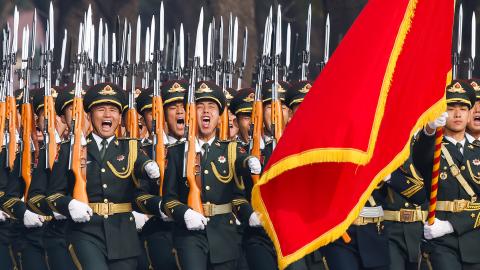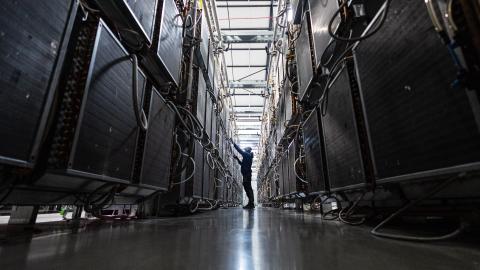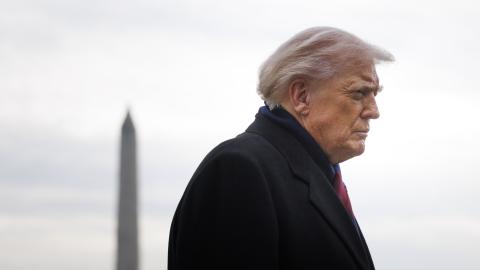At the time, World War I was thought to be the “War to End All Wars.” While World War I had many results, ending all war was not one of them. We are reminded of this failing as we review current trade wars around the world.
Through trade wars, countries seek to right certain wrongs—such as human rights violations, political failings, and intellectual property theft—by placing tariffs on—and in some cases, banning—select goods imported from foreign nations. By raising the cost of imported goods, tariffs also supposedly “even the playing field” between domestic companies and foreign companies that are engaged in wrongdoing. Higher tariffs, in turn, may increase demand for domestic industry, which could lead to hiring more domestic workers.
Tariffs can be a valuable short-term tool to persuade international trade partners to change their ways. Such appears to have been the case with America’s recent threat of tariff use against close allies such as Canada, Mexico, and the European Union. Trade wars with these nations have largely been averted.
But escalating tariffs and counter-tariffs with China have none of the appearances of short-term cajoling. To begin with, American concerns about Chinese governmental behavior are neither short-lived nor easily resolved. Over the last few years, America has responded to Chinese abuse of Americans’ intellectual property rights, foreclosure of Chinese markets to American businesses, Chinese human rights abuses, and other harms to international trade in the country in a variety of ways. We’ve blocked imports of certain Chinese goods and services, imposed tariffs on others, and prohibited the purchase by Chinese investors of certain U.S. companies. We’ve even limited the sale of the American operations of a Chinese company, TikTok, to American companies.
Politically, trade wars are winners. What American elected official wouldn’t want to “ put American workers first? Beyond this, it’s important for the American government to take a clear and consistent position on human rights, preservation of competitive markets, and protection of intellectual property both at home and with our trading partners abroad.
But economically, trade wars, like other wars, often have far more losers than winners. Americans aren’t just workers; they’re consumers too. While trade wars may benefit thousands of American workers in affected industries, they harm hundreds of millions more Americans who face fewer, more expensive options for goods and services in the marketplace. Indeed, import tariffs are often simply taxes on domestic consumers.
There is a broader harm too. Economies are measured by the value of transactions occurring within them. Trade wars harm economies by curtailing the overall amount of these transactions, as well as by raising the costs of conducting them.
These harms are magnified in economies built on rapid technological change. For example, absent international trade, it would be difficult, if not impossible, to develop and manufacture new electronic devices in America that require rare earth metals primarily mined in China. Similarly, without trade, it is difficult to develop new electronic devices in China that depend on microchips produced by American companies. Government leaders must therefore weigh the potential political benefits of a trade war with the almost certain economic losses.
Perhaps the most prominent and recent example of this interplay between technology and trade has been America’s ban on Huawei. Huawei, a Chinese company, is the largest manufacturer of telecommunications equipment in the world; thus, it’s also a leader in the development of next-generation 5G wireless technologies. The Chinese government has made the development of 5G tech a national priority, and much of China has access to a preliminary version of 5G, ahead of the United States. Thus, one might think that American consumers and telecommunications companies might be harmed by America’s ban on Huawei equipment—particularly when one considers the need to develop internationally competitive American 5G networks.
Thankfully, Huawei isn’t the world’s only supplier of 5G equipment. Verizon recently announced a multi-billion dollar purchase of 5G network equipment from Samsung, a Korean company. European network equipment providers like Nokia and Ericsson also sell full suites of 5G equipment. Meanwhile, several companies, through the Open Radio Access Network, or “ORAN,” Alliance, are developing standards for a software-driven, open-network 5G architecture less dependent on single-source equipment vendors. America’s trade war with China places no limitations on our companies’ ability to purchase 5G equipment from Samsung, Nokia, Ericsson, or any of the companies participating in the ORAN Alliance.
None of this is to say that American wireless consumers won’t be harmed by a trade war with China, or that the quality, competitiveness, and timely rollout of American 5G networks won’t eventually be compromised as a result. But at least for now, thanks to open trade with other countries, 5G deployment by the major American carriers is roughly on pace with international competitors.
Like World War I, America’s trade war with China may not be the trade war to end all trade wars. Thankfully, it isn’t the end of all international trade, either.




















